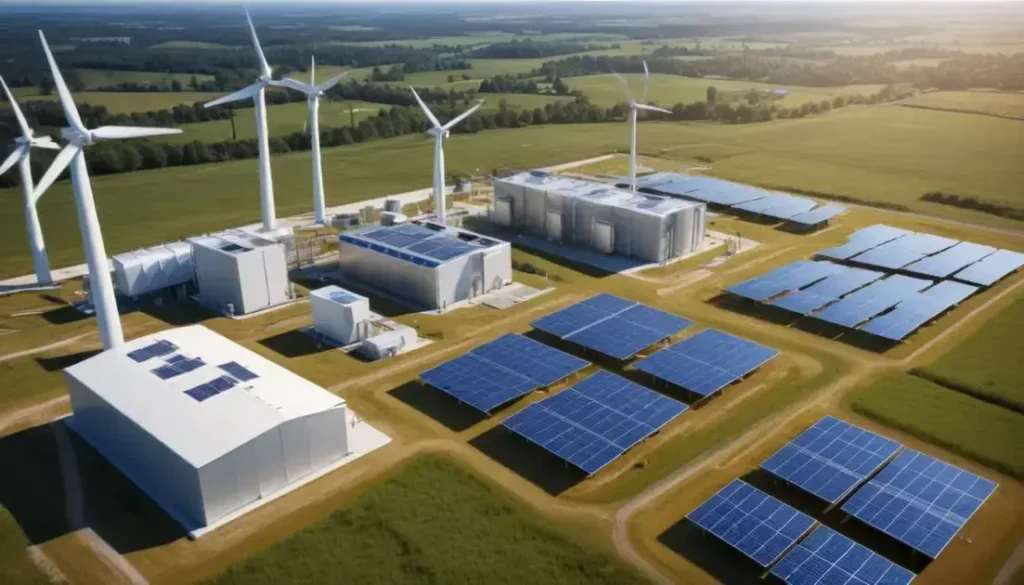Sustainable aviation fuel (SAF) significantly reduces greenhouse gas emissions in the aviation sector, enabling UK businesses to meet sustainability targets while allowing airlines to integrate eco-friendly alternatives without major operational changes.
Sustainable aviation fuel is shaping the future of flying, providing a crucial solution to reduce emissions. But what does this mean for businesses? Let’s explore.
Overview of the Avelia platform
The Avelia platform represents a significant advancement in the sector of sustainable aviation fuel (SAF). This innovative solution aims to streamline the production and distribution of SAF, optimising efficiency across the supply chain. By integrating cutting-edge technology, Avelia enables quick access to essential data, which helps stakeholders make informed decisions regarding fuel sourcing and utilisation.
One of the key features of the Avelia platform is its ability to facilitate collaboration among various participants in the aviation industry. This means that airlines, fuel producers, and regulatory bodies can work together seamlessly, ensuring that sustainability goals are met efficiently. The emphasis on collaboration and transparency is what sets Avelia apart, fostering an ecosystem that prioritises reduced carbon emissions.
Moreover, Avelia offers real-time analytics that enhance forecasting abilities. By using accurate data projections, businesses can better manage their operational strategies, ensuring they align with sustainability efforts. As the demand for eco-friendly alternatives rises, platforms like Avelia become indispensable for navigating the complex landscape of aviation fuels.
The role of sustainable aviation fuel in aviation
Sustainable aviation fuel (SAF) is a vital component in the quest for greener air travel. It significantly reduces greenhouse gas emissions compared to traditional fossil fuels. SAF is produced from renewable resources, making it an essential solution for the aviation industry aiming to meet its sustainability targets.
The roll-out of SAF has been gaining momentum as airlines seek to minimise their carbon footprints. By transitioning to these alternative fuels, airlines can lower life-cycle emissions by up to 80%. This transition has become particularly pressing given the global commitment to achieving net-zero emissions by 2050.
Moreover, SAF can be used in existing aircraft engines and fuel infrastructure, offering a seamless integration into current operations. This means that airlines can adopt SAF without the need for significant changes in technology or aircraft design. Such compatibility facilitates a quicker shift towards a more sustainable aviation sector.
In addition, the development of SAF is driving innovation in fuel production methods. Researchers are exploring various feedstocks, such as agricultural waste and algae, further enhancing the sustainability of aviation fuels. As the industry embraces these advances, the role of sustainable aviation fuel will only grow in importance, propelling the aviation sector towards a cleaner, more sustainable future.
Implications for UK businesses and the aviation industry
The adoption of sustainable aviation fuel (SAF) carries significant implications for UK businesses and the aviation industry. As airlines increasingly pivot towards greener fuel alternatives, UK firms must adapt to remain competitive in a rapidly evolving market. The regulatory landscape is shifting, necessitating compliance with new sustainability targets set by both the government and international bodies.
Investment in SAF infrastructure represents an opportunity for UK businesses to lead in this sector. By innovating and investing in cleaner technologies, firms can enhance their reputations and appeal to environmentally conscious consumers. This strategic shift not only aligns with sustainability goals but also opens avenues for government incentives aimed at promoting green initiatives.
Moreover, integrating SAF into existing operations will require a concerted effort from all stakeholders, including suppliers and fuel producers. Collaboration will be essential for establishing robust supply chains that can efficiently deliver SAF to airlines across the UK. This collaborative approach can lead to cost efficiencies and improved service offerings.
Additionally, by championing SAF, UK companies can play a pivotal role in achieving national and global climate targets. Engaging with stakeholders, including customers and investors, about the benefits of SAF will be crucial for driving adoption and ensuring the long-term viability of the aviation industry.
In summary, the future of aviation lies in sustainable fuel
The shift to sustainable aviation fuel (SAF) is essential for reducing emissions and addressing climate change. UK businesses and the aviation industry will benefit from embracing this change by enhancing their reputations and driving innovation.
Collaboration among stakeholders will be key to building a robust SAF supply chain. By working together, companies can create a cleaner and more sustainable aviation sector.
As the demand for eco-friendly options grows, early adopters of SAF will gain a competitive edge and be well-positioned for success in the evolving market. The commitment to sustainability not only aligns with global goals but also meets the expectations of environmentally conscious consumers.
In conclusion, sustainable aviation fuel is more than just an alternative; it is a vital step towards a sustainable future for the aviation industry.
As people also ask
What is sustainable aviation fuel (SAF)?
Sustainable aviation fuel (SAF) is a renewable fuel that reduces greenhouse gas emissions compared to traditional fossil fuels, crucial for greener air travel.
How does SAF benefit the aviation industry in the UK?
SAF helps reduce the carbon footprint of airlines, enables compliance with sustainability regulations, and opens opportunities for UK businesses to innovate and lead in green technology.
Can existing aircraft use sustainable aviation fuel?
Yes, SAF is designed to be compatible with existing aircraft engines and fuel infrastructure, which allows for easy integration into current operations.
What are the challenges of implementing SAF in the UK?
Challenges include developing a reliable supply chain, ensuring regulatory compliance, and the need for investments in technology and infrastructure for production and distribution.
How can UK businesses benefit from adopting SAF?
By adopting SAF, UK businesses can improve their environmental reputation, meet emerging regulations, and potentially receive government incentives for sustainable practices.
Is the use of SAF cost-effective for airlines?
Currently, SAF tends to be more expensive than conventional jet fuel, but as technology advances and production scales up, it is expected to become more cost-competitive.


